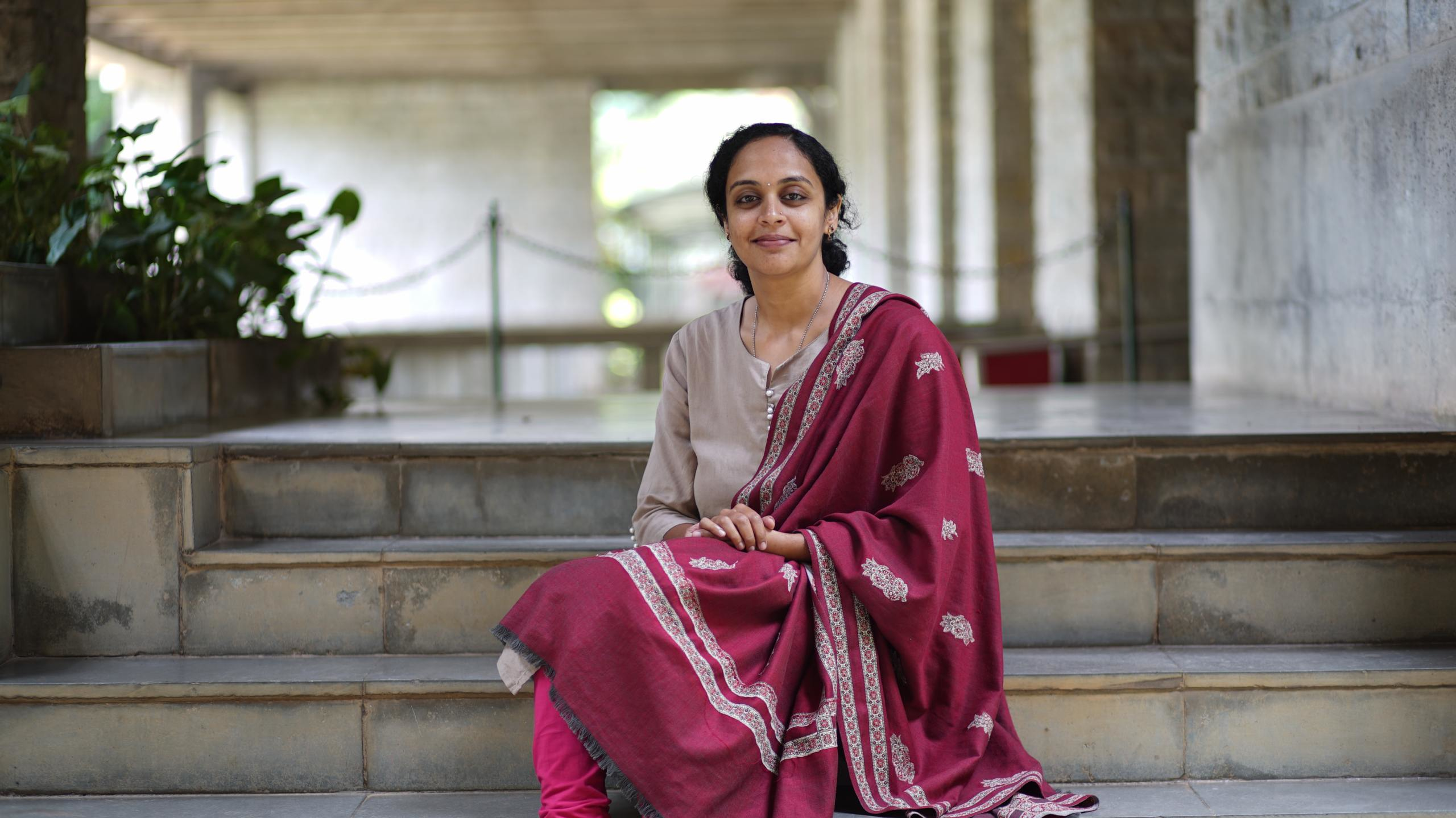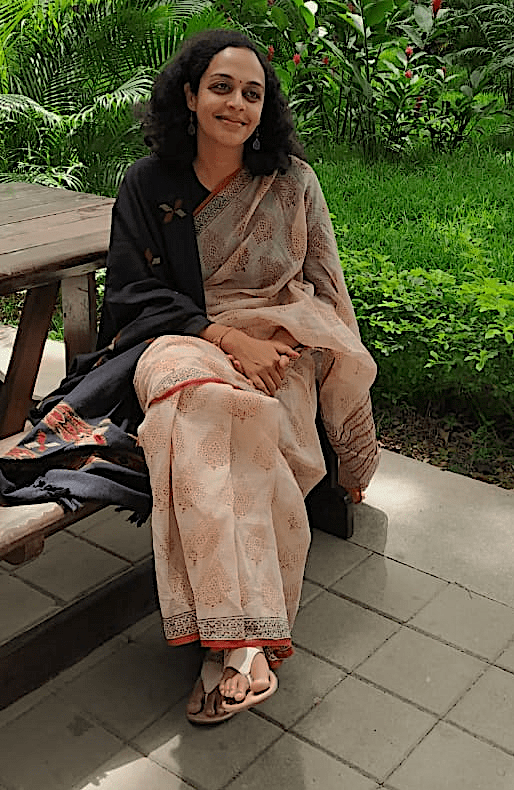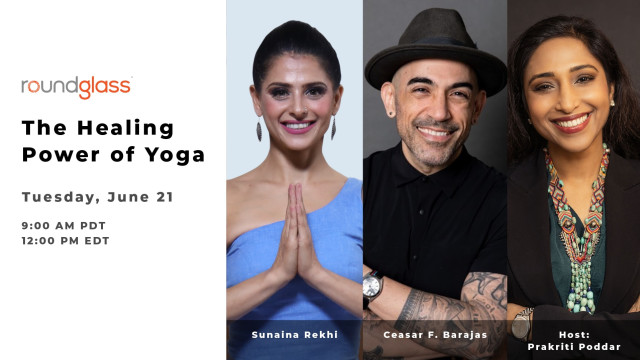My Depression Led Me to Meditate

I have walked the path of mindfulness and spirituality for so long that most people who meet me think I've always looked and sounded calm and confident.
This, however, is far from the truth.
In 2010, I was diagnosed with clinical depression and put on a high dose of antidepressants by my psychiatrist, which instigated an unexpected cascade of side effects, including panic attacks, anxiety, and insomnia.
Suffering from mental health issues is taboo in many cultures, especially mine. When I decided to share what I was going through with the people in my life and look for help, many of them talked behind my back, avoided going near me, and thought there was something fundamentally wrong with me.
The beginning stages of my depression felt like fighting a small upward battle. As time went by and I began to experience the side effects of my medication, it suddenly felt like I was climbing Mount Everest. I was alone and overwhelmed.
And Then There Was Meditation
Amid this emotional turmoil, a very close friend pushed me to sign up for a 10-day silent meditation retreat. Despite my skepticism and rebellious spirit, I eventually decided to indulge her and give it a try.
After 10 days of sitting in complete silence, shedding endless tears, and experiencing extreme physical discomfort, I felt a rebirth deep within me. I couldn't put a finger on what had changed, but something had taken a permanent turn for the better.
Emotional Pain Manifests Physically
I began noticing how when I felt depressed, my back would often feel hard like stone. When I observed this sensation, some deeply rooted limiting beliefs would surface. When I resisted those feelings and tried to silence them, the sensation in my back would strengthen. It was as if ignoring my emotions pushed them further inside, creating pressure similar to an active volcano.
Avoiding the feelings that make us feel uncomfortable is what most of us do and why we carry so much emotional baggage. We keep pushing them deeper into our bodies and minds without realizing it. Eventually, all that stored pressure needs an outlet, and it comes out as an outburst, a mental health condition, and in many cases, physical disease.
I learned it's important to cry or scream if you have to. Just let it all out. It may not feel good in the moment, but emotions will come and go. When you meditate, you observe and sit, with this never-ending flow. Sitting with, and fearlessly embracing your emotions heals them.

Meditation or Medication?
I still take a low dose of medication every day and practice meditation.
Despite all my inner work, my body still can't produce the necessary amounts of chemicals needed to feel completely stable on my own. The greatest gift I have received from my meditation practice is being entirely at peace with this.
Some people believe those who take psychotropic drugs aren't courageous enough to deal with the root of their mental health issues. I think it's courageous to accept that it's OK to need help. It's also brave to do whatever you need to feel well, regardless of other people's opinions.
Both medication and alternative healing modalities have an essential role in my life. I'm proud of myself for having the openness to accept that I need medication, despite being a committed meditation practitioner. I may stop taking medication one day, but that's not the goal of my healing path.
I aim to sustain a healthy, happy life, embracing outward support. As a meditation teacher, I have realized that the middle path is very sane.
A Loving-Kindness Practice for Acceptance
I learned a beautiful loving-kindness exercise during that first meditation retreat I attended, which has helped me tremendously in my path to healing and coming to terms with my mental health struggles. In the ancient languages of the East, they call it karuna or metta.
During this practice, you focus on sending kindness to the one person who needs it the most: yourself. You also send love to others, but the most valuable part, in my experience, is the self-love and self-compassion one develops through this process.
People find it extremely difficult to fully accept and love themselves. It's easy to send love to others, but sending love to oneself can be a real challenge.
This practice is powerful because it helps you recognize the sacredness of your own body and your whole existence. There is a beautiful softening inside when this happens, which enables you to understand that you may have been too hard on yourself for most of your life.
This may come up in the form of tears or even anger. When it comes out, the healing can begin. Before you know it, you start feeling more at peace, more confident when you face challenges, and you judge yourself a little less.

To practice loving-kindness:
Sit comfortably with your eyes closed.
First, send peace and love to yourself (If this is too difficult, imagine someone who loves you sending you positive thoughts and healing.)
Begin moving outward by sending love to a friend or family member.
Send love to someone neutral, like a neighbor or co-worker.
Then send love to someone you've fought with, or have a challenging relationship with.
End the practice by sending love to the entire world.
There's a beautiful progression in this practice that builds your capacity to accept yourself and others. In the end, it shows you that we are all just trying to be happy and loved. We're all just doing the best that we can.
And that, is enough.
Expand your hearts capacity to care for yourself and others with this free mini guided session, Dealing with Sadness and Pain, by meditation teacher Almeiri Santos.









